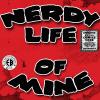

| Visitors Now: | |
| Total Visits: | |
| Total Stories: |

| Story Views | |
| Now: | |
| Last Hour: | |
| Last 24 Hours: | |
| Total: | |
Spook Country by William Gibson
Spook Country by William Gibson :
There’s probably no one else I can think of who can write so vividly, and inquisitively, about our contemporary techno-psychological landscape than William Gibson. His 2003 novel “Pattern Recognition” remains among the best – if not the best (of which I am certain) – fictional depiction of American media-obsessed culture in the aftermath of 9/11. It was also his best novel in years, a riveting techno-thriller about “cool hunter” Cayce Pollard’s search for the mysterious internet “The Footage” which had acquired a most bizarre cult-like status amongst Internet lurkers. “Spook Country”, Gibson’s latest novel, is a sequel of sorts, introducing us once more to the enigmatic Belgian advertising mogul Hubertus Bigend, owner of Big Ant advertising firm. This time he sends another young woman, Hollis Henry, an investigative journalist for Node – a magazine which doesn’t exist yet – on a rather mundane quest to find one Bobby Chombo, a “producer”, whose day job involves checking out military navigation gear. We encounter her, early one morning, in a Los Angeles hotel room, on assignment for Node, collecting information on the local underground artistic movement of virtual reality-based “locative art” for an article in the nascent magazine’s debut issue. In classic William Gibson literary mode, there are two other subplots which represent other, still larger, pieces of the puzzle that Henry is seeking to solve, involving Tito, a young Cuban Chinese New Yorker whose family has had intelligence ties to both the CIA and KGB, and the Russian-speaking junkie Milgrim, addicted to expensive prescription high-anxiety drugs, who finds himself quite literally, “joined to the hip” with his pharmaceutical benefactor, the mysterious Brown, someone who has some hidden ties to a military, most likely Russia’s.
Looming over this entire fictional landscape is of course Hubertus Bigend himself, who doesn’t appear until the end of the first third of “Spook Country”. Here, more so than “Pattern Recognition”, he comes across as some omniscient “Intelligent Designer”, orchestrating the events as they unfold, with the other principal characters – especially Hollis, herself – acting as puppets in some vast marionette theater of his own uniquely Byzantine design. We will learn that Bigend has chosen Henry for his mission since she’s a former member of the rock band The Curfew, which, apparently, has had ties to Bobby Chombo. There’s a memorable chase scene that plays out along the sidewalks – and one restaurant – of New York City’s Union Square (New York City finally makes its literary debut in a Gibson novel, and to his credit, Gibson does a splendid job depicting its unique urban rhythms.). Eventually, the three plot lines converge and intersect, in an ornate, yet tidy, resolution in Gibson’s hometown of Vancouver, British Columbia (The Canadian seaport, like New York City, also makes its literary debut in a Gibson novel.). There are references of course to contemporary events, such as the American occupation of Iraq, but Gibson presents them as if they were the literary equivalent of a GOOGLE search, allowing the reader to decide their relevant significance to the novel’s unfolding events in a decidedly neutral manner.
”Spook Country” is definitely not one of William Gibson’s best novels, but an inferior novel from him is still far more fascinating than many best novels I have read from other, lesser novelists who lack his uncanny ability to depict in hallucinatory, lyrical prose, our Internet-dominated culture (It’s an artistic trait I’d expect from the same writer who coined the term “cyberspace” years ago, before the Internet was created as the central, unifying information repository of our time.). It is still one of the best literary achievements in fiction published this year, and one that is artistically, if not stylistically, similar to the themes explored by Rick Moody in his recently published novella collection “Right Livelihoods”. Along with “Right Livelihoods”, “Spook Country” is the most compelling piece of newly published fiction I have read this summer. Without question, it is still a memorable novel from someone whom I regard as the most important writer of our time.
http://thegeekfeed.tumblr.com
http://thegeekfeed1.blogspot.com
2012-10-29 07:26:40
Source:


